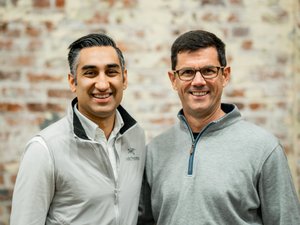
Less than 14 percent of Charlotte’s 3,000 employed computer scientists are people of color.
Despite being one of the state’s largest cities with an increasing population of black and Latino residents, 2015 census data show that people of color in the tech and information occupations are severely missing.
The data isn’t unique to Charlotte, however. From Silicon Valley to our neighbors in the Research Triangle Park, the lack of visibility of people of color thriving in high-paying, highly skilled technical industries are an ongoing national conversation.
But, with a heightened sense of awareness of our city’s acute talent challenges thanks to Amazon’s unapologetic evaluation of our lacking tech workforce, it’s time we have the hard conversations.
As a growing majority-minority city, the welfare, mobility and talent of people of color is paramount to the future of Charlotte. And while we’ve seen the studies, cited them ad nauseam and attended the endless panel discussions and meetings rarely featuring the target groups in reference, we’ve still yet to answer the question at hand: What will it take to make Charlotte a leading business and workforce environment that draws the attention of global admirers?
Charlotte, we won’t find our solutions in another diversity initiative teeming with loose metrics and grandstanding public performances of unhelpful programming. To view the scope of our challenges as only a race issue is to be mistaken. Our lens should be focused on spreading opportunity across the board in our communities.
For instance, landing a job within technology in a mid-size city that feels like a small town shouldn’t be a cumbersome experience. In my own personal experience when I arrived four years ago, navigating the startup environment meant being in the right place at the right time. Despite having had major wins as a marketing manager at Uber and more recently in a sales contractor role at Google Fiber, and boasting a very visible presence in the community, there was no immediate next step for my career.
We’ve lost several talented people and community contributors — many of them powerful minority women such as Jenifer Daniels and Lulah Dualeh — who have retreated to cities like Detroit and New York with opportunity and the resources to match.
We are also remiss if we are not using data to understand the business and economics of professionals of color. Even more so if we do not better leverage what we know about growing minority-owned businesses and connect them to the larger ecosystem we say we want to produce sustainable jobs.
We must also understand the value of investment — not charity. While Charlotte has become a city of several startup nonprofits, what if we were able to establish talent pipelines that began as early as high school? What if Charlotte’s accountability measures encouraged every employer to provide at least two paid high school internships to local students?
The work, however, does not rest solely on big companies. Nurturing an equitable ecosystem is also about developing solutions for small business owners and entrepreneurs to grow and scale their businesses without having to leave Charlotte for outside investment or support. For entrepreneurs of color, the least likely group to receive venture capital or other forms of financial support, having a ready solution in our city to help them grow and sustain could prevent losing some of our most ambitious residents.
Lastly, our silos will be our downfall. We must get serious about reducing inefficiencies by evaluating how knowledge-sharing happens in our city. We are not without resources. We are, however, without a mechanism in which private, public, and nonprofit sectors are sharing resources to the benefit of addressing our most acute challenges within the ecosystem.
Our next move must orient our action items around measurable outcomes that reduce talk time and prioritize implementation. We can do this by creating urgency, making the investment into game plans that leverage knowledge sharing, ecosystem efficiency, and leadership development. Charlotte has the potential to become an example to other cities, both nationally and abroad, of what getting things done looks like.
Part data and tech journalist, part social entrepreneur, Sherrell Dorsey is the president and CEO of BLKTECHCLT. She is determined to make North Carolina a more inclusive environment for diverse startup founders and technologists.
This article originally appeared in the Charlotte Observer.
For more stories like this, subscribe to StartCharlotte’s free weekly startup newsletter.








